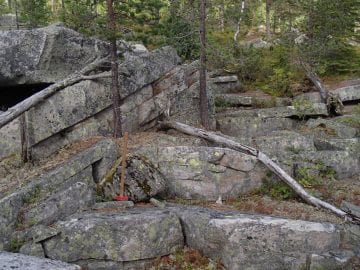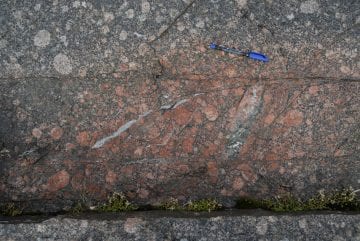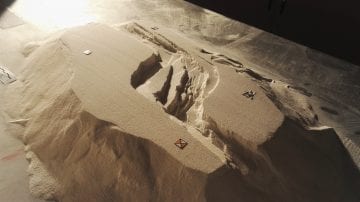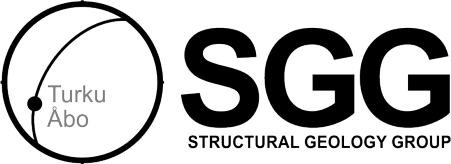Research themes
1. Structural evolution of the crust
Understanding the structural evolution of the crustal and the resulting geometries is essential as these together determine e.g. how the lithological units are distributed (locally and regionally) and how they continue within the subsurface. As a result, the crustal structures provide the first-order control over the localization and geometry of most mineral deposits.
Research within this field is complemented by geochemical, geochronological and petrological studies to provide the tools for understanding the characteristically multi-phase evolution of the complexly deformed crystalline Precambrian crust. We also utilize the methods of analogue modelling to validate the outcome of the field data-based geological 3D-models and to improve our conceptual understanding of the deformation processes.

2. Brittle structures of the bedrock
Much ongoing effort is placed upon understanding the fracture systematics occurring within the crystalline crust. Bedrock fracturing is of vital significance for many practical applications and we aim to reduce the uncertainty of fracture modelling in particular in areas of poor exposure and related sparse and unevenly distributed fracture data. Our principal aims include development of an optimized workflow to acquire and analyze fracture data, development of the collected datasets into an improved understanding of the fracture systematics within the crystalline Precambrian bedrock (including the inheritance after the ductile structures) and, finally, utilization of the expertise for diverse applied topics such as discrete fracture network (DFN) modelling, bedrock stability issues and groundwater management.

3. Nuclear waste disposal
SGG has given specialist support, statements and recommendations to the Radiation and Nuclear Safety Authority (STUK) concerning the geological disposal of the used nuclear fuel, with specific focus in issues related to structural geology and 3D-modelling. The work aims at supporting STUK in decision-making related to the geological disposal of the used nuclear fuel. In the work, the scientific expertise within bedrock geology is applied within a societally important subject. From the University of Turku perspective, the work also aims at further developing the skills and expertise within applied bedrock geology by training the staff and promising students.
Moreover, Geohouse has been active within the topic by organizing the ANNETTE summer school (Advanced Networking for Nuclear Education, Training and Transfer of Expertise; http://annettesummerschool.aalto.fi/) in June 2018 for 52 international students. The participants were introduced to the multi-disciplinary present and future challenges in present-day nuclear power production, Gen-IV nuclear power production, fusion and medical applications.

